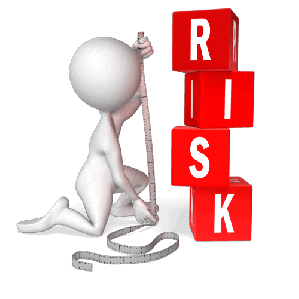
The answer to how risk management is important to project success is best illustrated by the fact that no project has ever succeeded without proper risk management. In other words, project management into which risk assessment has not gone in is as good as a doomed one.
Risk management’s importance to project success can never be overstated. Success at any project is unthinkable and unimaginable without proper and critical risk management. Risk management is a means by which the risks that accrue into a project are foreseen, assessed and mitigated, so that the project does not run into hitches at later stages, from where it would be all but impossible to rectify the same.
Understand what risk is, first
 The answer to the question of how risk management is important to project success has to start with a basic understanding of risk. In the context of project management, risk, as we all know, is the occurrence of a danger or an unwanted, undesired event in a project. It succeeds or is the next stage of a hazard, which is described as the potential for or the possibility of an event to cause danger.
The answer to the question of how risk management is important to project success has to start with a basic understanding of risk. In the context of project management, risk, as we all know, is the occurrence of a danger or an unwanted, undesired event in a project. It succeeds or is the next stage of a hazard, which is described as the potential for or the possibility of an event to cause danger.
How risk management is important to project success is to be understood from the standpoint of the fact that absolutely every activity, not only something concerning project management, has a risk. There are risks in simple and completely mundane activities such as brushing one’s teeth or putting a baby to sleep.
Diligence and thoroughness are important elements of risk management
 In order to manage a project successfully, the first step is carrying out risk management thoroughly and diligently. Risk management, if done properly, is the first and most fundamental aspect of success in a project. It is mainly about taking identifying, analyzing and mitigating risks in a business vis-à-vis its strengths and weaknesses.
In order to manage a project successfully, the first step is carrying out risk management thoroughly and diligently. Risk management, if done properly, is the first and most fundamental aspect of success in a project. It is mainly about taking identifying, analyzing and mitigating risks in a business vis-à-vis its strengths and weaknesses.
It is accepted in the discipline of risk management that risks cannot be completely eliminated. However, having a sound risk management plan helps to anticipate and be prepared for risks. The ways in which this is done mainly depends on the kind of project which the organization is carrying out, and the risk manager’s ability to understand it in its fullness and implement risk mitigation strategies effectively.
Palpable benefitsRisk management’s importance to project success is illustrated by the following benefits of carrying out a Risk Analysis:
 Planning:This involves understanding the importance of risk management to project success by planning the risk management in terms of its size. It is generally true that the bigger the project from the operational, logistical and financial perspectives; the greater the risk, and vice versa.
Planning:This involves understanding the importance of risk management to project success by planning the risk management in terms of its size. It is generally true that the bigger the project from the operational, logistical and financial perspectives; the greater the risk, and vice versa.
Preparing: The next stage of risk management is to prepare for it. The right knowledge of the project in all its detail helps project managers to prepare for any exigency and for taking steps to mitigate its effects.
 Measuring the result: Judicious and farsighted project managers measure the fallout of a risk management activity by what it fetches. If a risk management activity has accrued a certain expense that cannot be justified in the light of the benefit it brought, then such a risk management action is not effective and has not understood the importance of risk management to project success.
Measuring the result: Judicious and farsighted project managers measure the fallout of a risk management activity by what it fetches. If a risk management activity has accrued a certain expense that cannot be justified in the light of the benefit it brought, then such a risk management action is not effective and has not understood the importance of risk management to project success.
Evaluating the impact: A risk management plan may have been planned, prepared and executed very diligently, but risk managers ask what impact such an action had on the project, and eventually, on the organization. How many resources did it consume? How much time did it take? What kind of risk did it mitigate and what was the impact of this risk, had it been allowed to continue? These are some of the questions insightful risk managers ask. This perceptiveness is a result of their sharp understanding of how work management is important to project success.
You need to be a member of MedTech I.Q. to add comments!
Join MedTech I.Q.